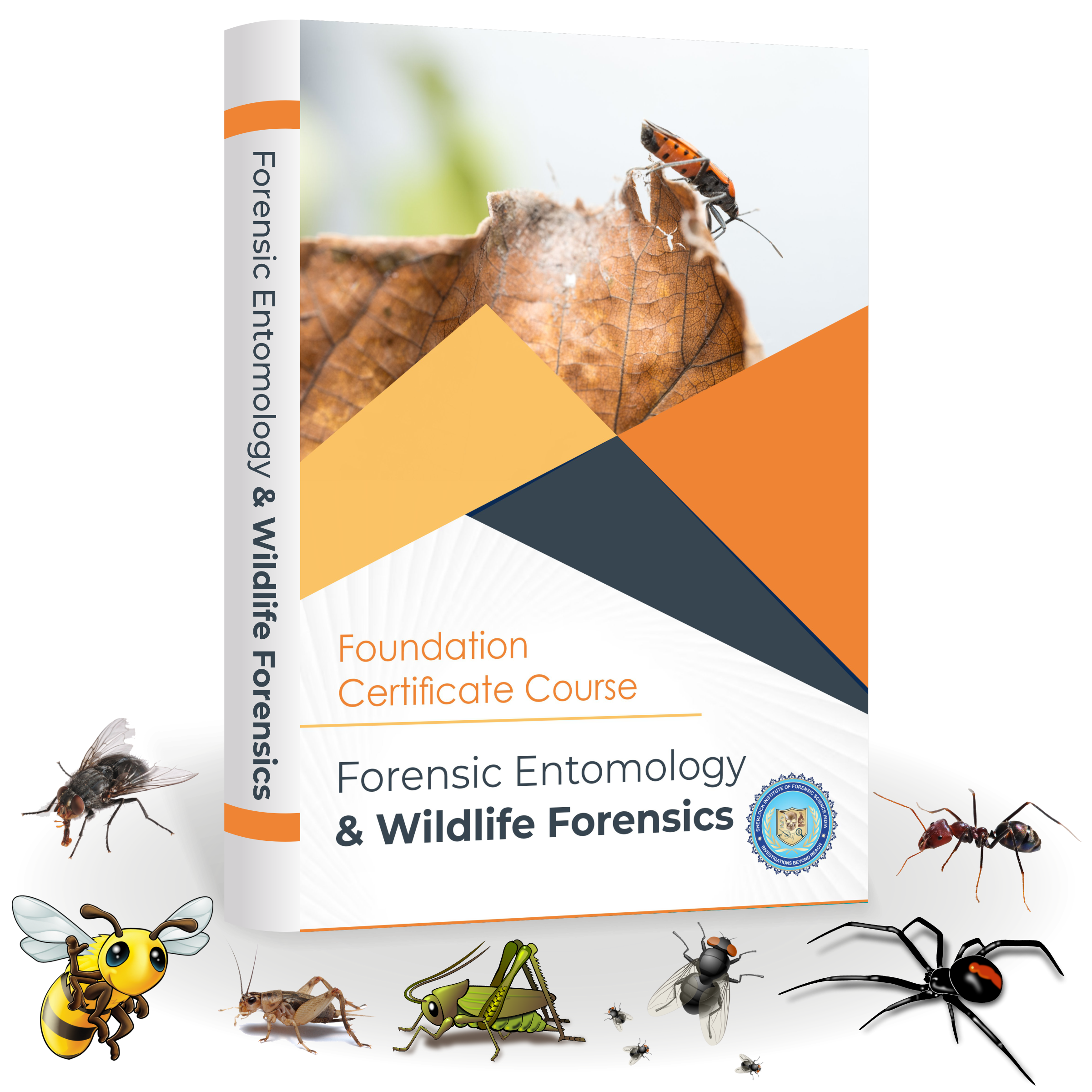The forensic entomology & wildlife forensics online course was truly unique. The blend of studying insect activity with wildlife crime investigations opened my eyes to an entirely new side of forensic science.

Course Start Date : 1st Nov 2025
Last Date to Register : 25th Oct 2025
Insects and wildlife are two areas that help forensic investigators draw several clues about crime and narrow down suspects and eventually help legal bodies in solving complex cases. The online Forensic Entomology & Wildlife Forensics Foundation Certificate Course by the Sherlock Institute of Forensic Science is a specialized program designed for those interested in studying how insect and wildlife evidence can be used to solve criminal cases.
This one-month course is delivered by experienced forensic professionals and covers foundational concepts like techniques to collect and analyze insect evidence, identify wildlife species, and investigate wildlife crimes; estimate the time of death using insect evidence; the role of insects in decomposition; and the legal applications of insect evidence. Additionally, the course will introduce you to the field of wildlife forensics, covering topics like ways to track the illegal trade of endangered species, identifying biological samples from animals, methods to protect wildlife and combat illegal activities such as poaching and trafficking, the legal aspects of wildlife protection, and applying findings to support law enforcement efforts.
Upon successful completion of the course, you will receive a certificate that validates your expertise in forensic entomology and wildlife forensics. This certification opens up ways to further explore this field by opting for advanced-level courses leading to career opportunities in various fields, including forensic science, wildlife conservation, environmental protection, and law enforcement.
Become Proficient to Answer:
- What is the role of forensic entomology in determining the time of death?
- In what way do insect life cycles aid in determining time of death?
- How are insects utilized and collected at crime scenes and analyzed thereafter?
- In what ways does wildlife forensics help in resolving crimes on animals and poaching?
- How is the illegitimate trade in wildlife and trafficking in wildlife detected?
- How is information gathered on insect species to link the evidence to specific geographic locations?
- What tools and technologies are utilized for insect and wildlife investigations?
- What role is played by forensic entomology in the investigation of mass disaster or buried body incidents?
- What role does DNA analysis play in wildlife forensic investigations?
- In what way are other clues, such as insects and wildlife, brought to enhance the solving of environmental and ecological crimes?
- What problems do forensic entomologists encounter during the collection and identification of insects?
- How is forensic entomology and wildlife evidence presented in legal proceedings?
Learning Outcomes:
Introduction to Forensic Entomology: You will gain an understanding of how insect evidence can be used to determine the time of death in forensic investigations.
Using Insects for Post-Mortem Interval (PMI) Estimation: You will learn the methods used to study insect life cycles and estimate the time of death based on insect activity.
Wildlife Forensics and Investigation Techniques: You will acquire skills in investigating crimes involving wildlife, including poaching, trafficking, and environmental violations.
Insect and Wildlife Evidence Collection: You will learn techniques to properly collect and preserve entomological and wildlife evidence at crime scenes.
Legal Considerations in Wildlife Forensics: You will understand the legal frameworks surrounding wildlife crime investigations, including international laws on endangered species and trafficking.
Course Details:
Fee | National: 1770 INR (1500 INR + 18% GST) International: 50 USD |
Duration | 1 Month |
Eligibility | 12th Passed |
Session Timing | From 6 to 7 PM IST | Tuesday, Thursday, Saturday |
Payment Details:
International Student : PayPal: forensicdocument@gmail.com
Account Details for National Student
Bank Name - ICICI BANK
Acc. Name - SIFS INDIA PVT. LTD.
Account No. - 663505500086
Type - Current
IFSC Code - ICIC0000160
Address - ICICI Bank, H-4, Model Town -III, New Delhi - 110009


